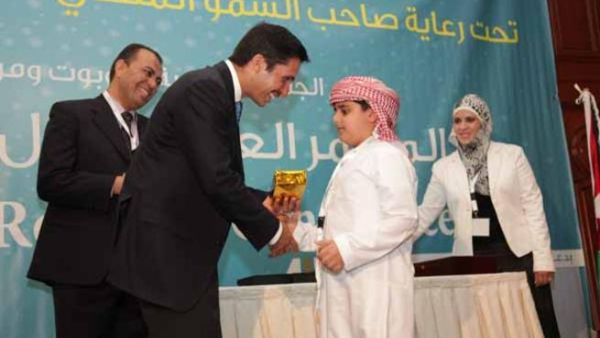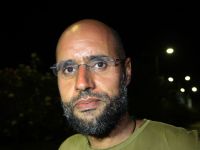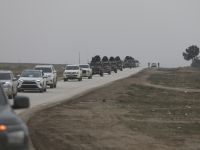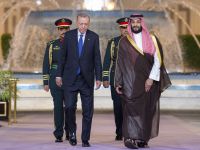Researchers, scientists and engineers from the Arab world convened in the (Jordanian) capital on Sunday to share experiences and network at the first Arab Robotics Conference.
HRH Prince Hamzah opened the three-day event, attended by 100 participants from 13 Arab countries and the US, according to a statement from the King Hussein Foundation (KHF).
During the conference, organised by the Arab Robotics Association (ARA) and the KHF’s Jubilee Centre for Excellence in Education (JCEE), specialists are presenting 26 working papers and four keynote speakers are delivering lectures in their fields of expertise, the statement said.
The JCEE, which established the National Education Centre for Robotics in 2004, has organised and hosted national robotics competitions over the past eight years.
JCEE Director and ARA President Ismail Yasein described this week’s conference as the logical next step.
“After eight years of working on robotics with kids in order to increase awareness I think now is the time to go one step further by collaborating with specialists, students and professionals in the hopes of developing real robotics projects that can be applied in industry and across other fields.”
Alaa Suleiman Abuiteiwi, a graduate in computer engineering from the Islamic University of Gaza, expressed hope that the event will help participants forge meaningful connections with others working in the field of robotics in the Arab world.
“We predict that the future will be for robotics,” the 22-year old said, “so we want to be part of this future, we want to participate in this future, we want to be the major factor in this future.”
For Abuiteiwi that means connecting with scientists, students, major companies and sponsors in order to create a system of educational associations and universities to develop and improve the situation of robotics in the region.
The youngest participant at this week’s conference is eight-year old Adeeb Sulaiman from Dubai, who is known as the youngest scientist in the UAE, according to the statement.
His philosophy is using robots to help make life for humans better — not for the destruction of life.
“For example I already made this robot… it’s a tiny mini-sized robot… you switch the ‘on’ button and it walks and cleans,” Sulaiman explained.
The young scientist with big ideas said he is now developing the remote control for the robot, which uses a broom attachment to clean.
Part of the conference will be devoted to robotics in science, technology, engineering and math or STEM, which the JCEE began introducing to schools in Jordan about a year ago, the statement said.
Ethan Danahy, a technology development researcher from Tufts University in Boston, said that STEM is a new “hot” topic and his goal as a researcher is to find innovative ways of engaging students and getting them involved in the process of learning about these topics.
Danahy believes that can best be accomplished through the act of “doing”.
“It’s really an emphasis on hands-on learning… project-based learning, the students learning for themselves rather than having teachers simply injecting the information,” he noted.
Danahy added that while the role of the teachers is still very important, they become more of a mentor, coach or a role model for how the students need to learn.
Another conference speaker, Sarah Hamdan, who is in her second year of a master’s programme in robotics programming and engineering at the University of Damascus, said she wants to encourage more young women to enrol in robotics courses.
Hamdan said she also wants to develop an online network to connect people in the Arab world who are working on the same types of projects involving robots.
“I am very happy in this conference,” she remarked, “because I know a lot of people who work on the same subject as me… and maybe we can discuss together to make a new subject and a bigger subject than mine.”
Do you think the development of robotics is important for the Arab world? Leave us your comments below!








